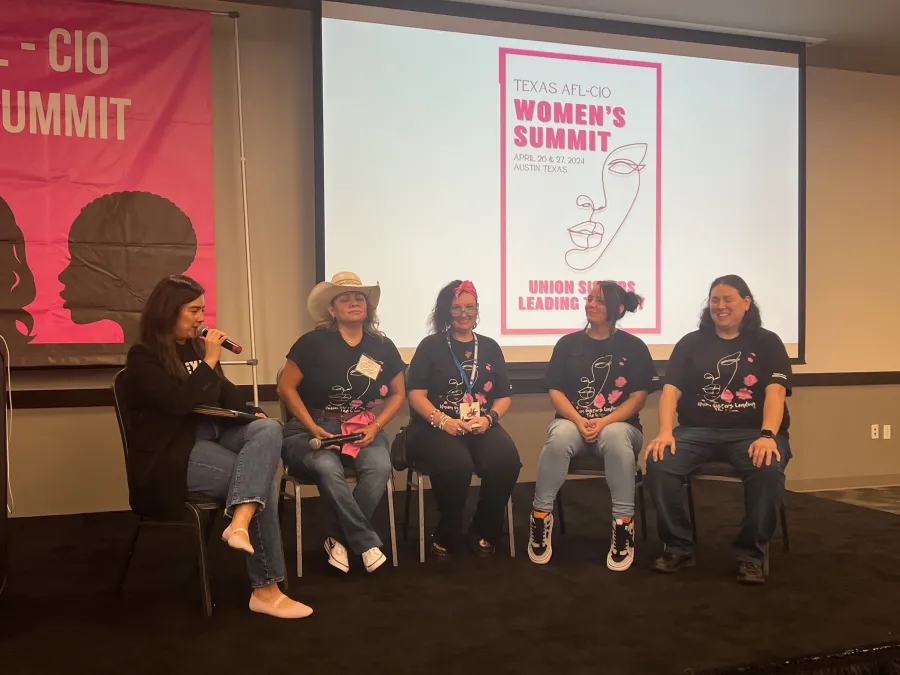Voice and Power: Women in Building Trades Talk Value of Registered Union Apprenticeships, Emphasis on Workplace Safety

Moderated by Texas AFL-CIO Director of Organizing and Advocacy Ana Gonzalez, four women enjoying successful careers in Building Trades unions spoke about what it is like to work a job that in the past was traditionally reserved for men.
How did they make it? All of them credited registered union apprenticeship training that aims to put everyone on a level playing field and that places safety first.
Their testimonials should resonate with every union member. It certainly made the women at the Summit and the Texas AFL-CIO proud.
“I didn’t know the difference between copper and steel,” Mindy Alvarez of UA Local 142 told a record attendance of 180. “I knew absolutely nothing, so they gave me room. I built confidence because I was learning from Brothers and Sisters who already went through the training, so they were able to share their experiences with me, I was able to learn from them, I was able to confide in them, I was able to build relationships with them.”
Alvarez continued: “They went to work and worked in the rain the same way I did. We went to (apprenticeship) school in muddy jeans, muddy boots, sweaty pants and we sat there and we shared a meal after eight to 10 hours a day, and then another four hours in the evening together, and we had blood, sweat and tears together the whole five years of apprenticeship.”
All four agreed the emphasis on safety dominates the mindset of any apprentice and is a key to acclimating women to the building trades.
“You can recognize a union job site versus non-union site at any time,” said Blanca Rios of the International Union of Elevator Constructors Local 133. “Just the fact that…we find women that want to put on steel-toed boots and hard hats every single day is difficult enough. But the fact that we can have a strong union and job sites that have higher safety standards than…non-union jobs sites is super-important to us.”
Caressa Aamodt of International Brotherhood of Electrical Workers Local 520 emphasized the central role of water breaks in job safety — a point that has resonated as Texas blocks local governments from enacting heat safety ordinances.
“Cool water in warm time — that’s a huge thing,” Aamodt said. “That’s the difference between heat exhaustion and making it through the end of the day, period.”
Victoria Sutherland of Ironworkers Local 482 said apprenticeship training and emphasis on safety breeds trust.
“When you’re walking onto a job that’s union, you know everybody there is within a two-year first aid/CPR certification. You know everybody there has had their fall protection (training), basic stuff,” Sutherland said. “You can identify people right away by the color of their hat or the number of their stickers or the shape of their boots, which one is gonna know where to go and, as a woman on the job, you need to know these things, who you can rely on and who to go to.”
The panel said the earn-while-you-learn union apprenticeship system, and its focus on step-by-step development, has lifted their status.
“For a woman being in a trade that is mostly men, being a part of that classroom space and having those individuals who might not have ever had another woman on their job site or worked with another woman, it’s important to take those spaces and take those opportunities,” Rios said.
“When I walk up to another mechanic, I know that he knows that we have at least the same basic skill set and knowledge. That apprenticeship is what allows that to happen.”
“I wasn’t raised for the trades,” Sutherland said. “I was raised to be pretty and to marry wealth. If I didn’t have the apprenticeship, I would have taken those skills right to the job, and where would I be now?”
